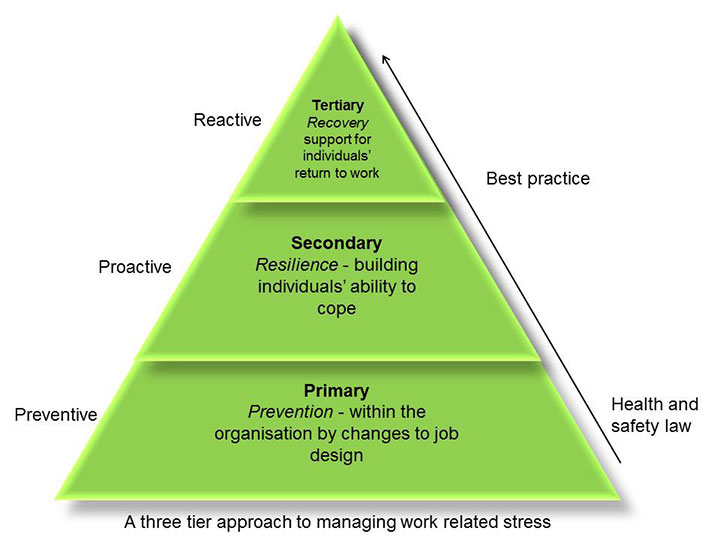Our position on managing work-related stress in the rail industry, highlighting the costs as well as the business benefits of preventing stress before harm occurs.
Our health programme for 2014-19 urges the rail industry to go further than simple legal compliance towards best practice in managing occupational health, including work-related stress.
Stress is recognised by rail employers and trades unions as a key health concern, with significant costs to individuals and businesses. Failure to properly manage work-related stress can lead to ill-health, an increase in human error in the workplace, and add cost to employers.
- The direct costs of mental ill health to UK employers, including sickness absence and reduced productivity due to presenteeism, have been estimated at £26 billion a year (Centre for Mental Health report 'Mental Health at Work: Developing the Business Case 2007').
- The Chartered Institute of Personnel and Development (CIPD) reported that stress and mental ill health were the biggest cause of long-term sickness absence in 2013 for the third year running. 42% of employers reported an increase in stress related absence over the previous year, with 22% reporting an increase among their managers. Workload, management style, and organisational change were seen as key drivers.
- In recent research by MIND, almost a third of the workers polled did not feel able to talk openly to their line manager if they felt stressed. The TUC biennial survey 2012 again ranked stress first (63%) in the top five hazards of concern to workers in the transport and communications sector.
- Data from the Health and Safety Executive (HSE) indicate that in 2018/19 an estimated 12.8 million days were lost to work related stress, anxiety or depression. On average, each affected person took 21 days off work.
Our position paper on work related stress sets out how we will work with the industry to harness the health and business benefits of better stress management. We are looking for a comprehensive three tier approach to managing stress, which gives sufficient priority to preventing stress through organisational changes and job design, supported by good practice interventions to help individuals stay well and at work.

We are keen to see rail employers take these steps because:
- There are clear legal duties under health and safety law to assess and manage work related stress, as well as responsibilities under employment law - ill health caused by stress can attract costly compensation claims.
- Managing stress well can also save rail companies money and improve efficiency (good health is good business) – many examples of cost and productivity savings can be found on HSE's website: business solution case studies.
There is further guidance on what rail employers need to do, and on how line managers, Human Resources (HR) professionals and employees can contribute to preventing work related stress. ORR is keen to work with the rail industry to share existing good practice and learn lessons from both outside and within the rail industry.

